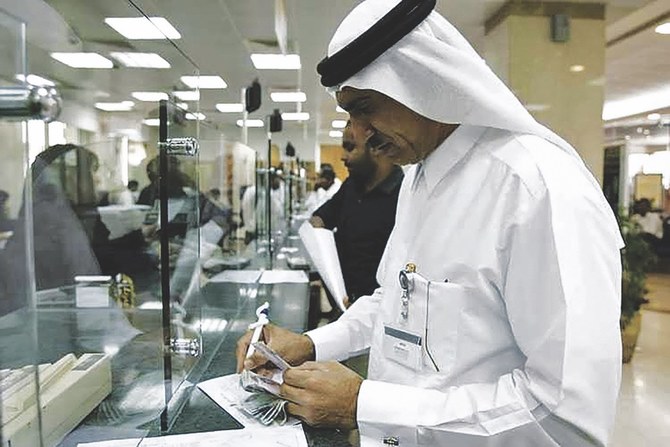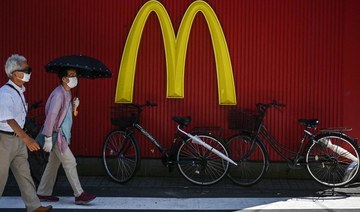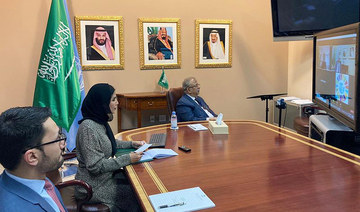SAN FRANCISCO: Lauren Foundos has excelled at just about everything she has put her mind to, from college sports and Wall Street trading to her Forte startup that takes workouts online.
Being a woman in the overwhelmingly male world of venture capital was still a barrier — but, like many other female entrepreneurs, she only worked harder to succeed.
“In some cases, before I even spoke, they were asking me if I would step down as chief executive,” Foundos said of encounters with venture capitalists.
“This was a whole new level.”
Men would speak past her in meetings, discussing whether she could emotionally handle the job as if she wasn’t there, or wondering out loud who would take care of the books.
“When that happens, I tell them I am right here,” Foundos said. “I am the finance guy; I worked at big banks for more than 10 years. I’ve been the best at everything I have ever gone into.”
Startups can only get by so long relying on friends, family or savings before eventually needing to find investors willing to put money into young companies in exchange for a stake in the business.
Money invested in startups in their earliest days, perhaps when they are no more than ideas or prototypes, is called “seed” funding.
When it comes to getting backing for a startup it is about trust, and that seems to be lacking when it comes to women entrepreneurs, according to Foundos and others interviewed by AFP.
“I don’t think women need to be given things,” Foundos said of venture capital backing. “But I think they are not seeing the same amount of deals.”
Forte has grown quickly as the pandemic has gyms and fitness centers scrambling to provide online sessions for members.
Foundos brought on a “right-hand man,” a male partner with a British accent, to provide a more traditional face to potential investors and increase the odds of getting funding.
She has taken to asking venture capitalists she meets if they have invested in women-led companies before, and the answer has always been “no.”
A paltry few percent of venture capital money goes to female-led startups in the United States, according to Allyson Kapin, General Partner at the W Fund and founder of Women Who Tech (WWT).
Being sexually propositioned in return for funding, or even an introduction to venture capitalists, is common for women founders of startups, according to a recent WWT survey.
Some 44 percent of female founders surveyed told of harassment such as sexual slurs or unwanted physical contact while seeking funding.
And while last year set a record for venture capital funding, backing for women-led startups plunged despite data that such companies actually deliver better return-on-investment, according to Kapin.
“This isn’t about altruism or charity, this is about making a (load) of money,” Kapin said of backing women-led startups.
Prospects for funding get even more dismal for women of color.
Black entrepreneur Fonta Gilliam worked overseas with financial institutions for the US State Department before creating social banking startup Invest Sou Sou.
Gilliam took the idea of village savings circles she had seen thrive in places such as Africa and built it into a free mobile app, adding artificial intelligence and partnering with financial institutions.
She created a Sou Sou prototype and started bringing in revenue to show it could make money, but still found it tougher to get funding than male peers.
“We always have to over-perform and overcompensate,” Gilliam said. “Where startups run by men would get believed, we’d have to prove it 10 times over.”
Gilliam got insultingly low valuations for her startup, some so predatory that she walked away.
“We are still lean and mean bootstrapping, but I think it is going to pay off in the end,” Gilliam said.
“One thing about women-owned, black-owned startups: because there is such a high bar to get support our businesses tend to be scrappier, stronger and more resilient.”
Women-led startups tend to be on the outside of the “pipeline” that unofficially funnels entrepreneurs to venture capitalists, according to Kapin and others.
In Silicon Valley, that channel is open to male, white tech entrepreneurs from select universities such as Stanford.
“The pipeline becomes filled with people from the same universities; from similar backgrounds,” Kapin said.
“It is not representative of the world, which is problematic because you are trying to solve the world’s problems through the lens of very few people — mostly white men.”
Investors competing for gems in the frothy tech startup scrum are missing out on a wealth of returns, and stability, to be had by investing in neglected women founders, according to Caroline Lewis, a managing partner in Rogue Women’s Fund, which does just that.
“At the end of the day, it is the right thing to do and it is a good thing to do,” Lewis said.
Women fight for funding in man’s world of tech startups
https://arab.news/43jeb
Women fight for funding in man’s world of tech startups

- Women-led startups tend to be on the outside of the “pipeline” that unofficially funnels entrepreneurs to venture capitalists
Saudi authorities plan to boost assets under management to 29.4% of GDP in 2024

- Capital Market Authority plans to accelerate the pace of listings by welcoming 24 new companies
RIYADH: Saudi Arabia aims to enhance its stock exchange appeal to foreign investors, targeting 17 percent ownership of free float shares by 2024, a new report has revealed.
According to the 2023 Financial Sector Development Program document, the Saudi Capital Market Authority plans to boost assets under management to 29.4 percent of gross domestic product in 2024 by increasing the investment environment and attracting more investors.
The report, published annually, highlights the achievements in the financial sector, particularly the Kingdom’s ongoing progress in competitiveness indicators related to the capital market, as stated by Mohammed Al-Jadaan, minister of finance and chairman of the FSDP.
Commenting on the development of the financial sector, Al-Jadaan emphasized the importance of innovation and investment in talent and technology.
“We have placed innovation and investment in both talent and technology at the top of our priorities, because we recognize the importance of building a dynamic financial environment that allows companies — especially startups — to flourish and succeed,” the minister stated.
In line with its commitment to facilitating financing in the capital market, the CMA also plans to accelerate the pace of listings by welcoming 24 new companies in 2024.
Moreover, there will be a focus on supporting the development of new and promising sectors, with a target of having micro and small enterprises account for 45 percent of total listings.
Another area of emphasis is the deepening of the sukuk and debt instruments market, with the goal of increasing the debt-to-GDP ratio to 22.1 percent by the end of 2024. These measures aim to provide diverse financing options for companies and further stimulate economic growth.
“The capital market ecosystem continued its efforts to contribute to developing the financial sector and achieving the Saudi Vision 2030,” stated Mohammed El-Kuwaiz, chairman of the CMA.
“By approving rules for foreign investment in securities and streamlining regulatory procedures, we have witnessed a significant increase in foreign investments in the capital market, reaching SR401 billion ($106.9 billion),” El-Kuwaiz added.
The Saudi Central Bank also reaffirmed its commitment to adhering to international standards and best practices to enhance the strength and stability of the financial sector.
Initiatives such as developing digital solutions for supervising the financial sector and enabling local and international FinTechs demonstrate the Kingdom’s dedication to embracing technological advancements.
Furthermore, the Financial Academy unveiled its new strategy for 2024-2026, focusing on enhancing human capabilities in the financial sector through training programs and professional certifications.
The academy aims to increase the number of trainees and improve the quality of its services to meet the evolving needs of the industry.
The 2023 FSDP report highlighted significant progress across sectors like fintech and digital banking.
The Kingdom saw a surge in fintech companies, surpassing 2023 targets with 216 in operation and launching two digital banks.
Saudi Arabia claimed the top spot in the Corporate Boards Index among G20 nations and secured second place in various indices. Foreign companies relocated headquarters to the Kingdom, deepening the capital market.
Moody’s, Fitch, and S&P Global Ratings revised Saudi Arabia’s outlook to “Positive” and affirmed its “A1” and “A+” credit ratings, citing fiscal policy development, economic reforms, and structural improvements.
Saudi Arabia led venture investments in the Middle East & North Africa, securing 52 percent of total investments in 2023, and allocated SR10 billion to support small and medium enterprises across economic activities and regions in the first half of the year.
Islamic finance industry projected to grow in 2024-2025

- Global sukuk issuance likely to reach around $170 billion in 2024
RIYADH: The Islamic finance industry is projected to grow globally in 2024-2025 with total assets likely to witness single-digit growth driven by economic diversification efforts, a report said.
It predicted that sukuk issuance globally would hover between $160 billion and $170 billion in 2024, representing a steady momentum from $168.4 billion in 2023 to $179.4 billion in 2022.
In its latest analysis, credit rating agency S&P Global highlighted that the industry grew by 8 percent and 8.2 percent in 2023 and 2022, respectively, stemming from growth in banking assets and the sukuk industry.
According to the US-based firm, Islamic banking assets grew 56 percent in 2023 compared to 72 percent in 2022.
Financial institutions across the Gulf Cooperation Council region accounted for 86 percent of the reserve increase in 2023, with Saudi Arabia becoming the chief contributor, having generated 56.7 percent of the maturation.
“We expect the implementation of Vision 2030 and growth in corporate and mortgage lending to continue supporting the Islamic finance industry over the next 12-24 months. In addition, the UAE showed a stronger contribution in 2023 thanks to the good performance of the non-oil sector,” the report noted.
It added: “Elsewhere, we observed some growth, particularly in Turkiye and Indonesia. The performance in Malaysia and Turkiye was somewhat tempered by the depreciation of the ringgit and the lira.”
According to the US-based firm, the issuance of this Shariah-compliant debt product began on a strong footing in 2024, with Saudi Arabia becoming a key contributor to the performance.
“The drop in issuance volumes in 2023, which mainly resulted from tighter liquidity conditions in Saudi Arabia’s banking system and Indonesia’s lower fiscal deficit, was somewhat compensated by an increase in foreign currency-denominated sukuk issuance,” S&P Global said in the report.
It added: “The market has started 2024 on a strong footing, with total issuance reaching $46.8 billion at March 31, 2024, compared with $38.2 billion at March 31, 2023.”
The analysis highlighted that the sukuk market will continue its growth momentum in the near term as financing needs in core Islamic finance countries remain high, given ongoing economic transformation programs, especially in countries like Saudi Arabia.
“We expect the sukuk market to fill in some of these needs. Specifically, we see some opportunities in the structured finance space with banks tapping the sukuk market to refinance their sizable mortgage books,” said the agency in the report.
The agency highlighted that the drive for digitalization and sustainability initiatives have yielded mixed results in the Islamic finance industry.
“While opportunities related to sustainable finance are significant as the industry is concentrated in oil exporting countries, progress has been relatively slow and limited in the global context,” according to S&P Global.
However, the report noted that digitalization has helped the banking side of the industry.
S&P Global concluded the study by saying that the future of Islamic finance is sustainable, collaborative, and digital.
“It is sustainable thanks to the alignment between Shariah principles, overarching pillars of sustainability, and the value proposition of Islamic finance that capture more than just financial objectives,” said the report.
According to the analysis, the future of Islamic finance is collaborative because stakeholders do not want to disrupt the industry equilibrium and erase the development achieved over the past 50 years.
The report added that digitalization will also impact Islamic finance in the coming years, as leveraging emerging technologies could help the industry enhance its efficiency and ultimately increase its value proposition for investors and issuers.
Pakistan says expecting more high-level Saudi business delegations amid investment push

ISLAMABAD: Pakistan expects continued visits by high-level business delegations from Saudi Arabia in the upcoming weeks to further explore investment opportunities facilitated under the Special Investment Facilitation Council, the Foreign Office announced on Thursday.
The statement came just days after Prime Minister Shahbaz Sharif concluded his visit to Riyadh, where he addressed the two-day World Economic Forum conference.
During his visit, Sharif met with Crown Prince Mohammed bin Salman and several Saudi ministers to strengthen bilateral relations and economic partnerships between the two nations.
Prior to his visit to the Kingdom, Saudi Foreign Minister Prince Faisal bin Farhan was in Islamabad with a large delegation, saying the Pakistani administration’s resolve to strengthen the economy would yield “significant benefits.”
“Saudi investors have been coming to Pakistan in recent months, and engaged with the SIFC in terms of exploring opportunities for Saudi investments in Pakistan, and this is an ongoing process, and we expect similar high-level business delegations to undertake visits to Pakistan in the coming days and weeks as well,” Foreign Office spokesperson Mumtaz Zahra Baloch told reporters in her weekly media briefing.
She added that both countries were involved in robust and mutually beneficial dialogue that had gained significant momentum in recent months.
“Pakistan and Saudi Arabia are engaged in consultations with each other in terms of increased Saudi investments in Pakistan, including in the energy domain,” she added.
Asked about reports of Pakistan providing military bases to the US, Baloch called them rumors.
“Pakistani has no plan to provide any bases to a foreign country against any other country,” she said.
Speaking about the Organization of Islamic Cooperation’s summit in Gambia, the spokesperson said the country’s deputy prime minister, Ishaq Dar, would highlight the ongoing genocide in Gaza, the right to self-determination of the people of Jammu and Kashmir, the imperatives of solidarity and unity of the Muslim ummah, rising Islamophobia, issues of climate change, terrorism, and other contemporary global challenges.
She said Pakistan strongly condemned the escalating violations of human rights by Israel and increasing number of illegal Israeli settlements in the West Bank.
“Israel’s actions constitute a breach of international law, including humanitarian laws and other pertinent international laws, and these acts also undermine any prospects of a two-state solution,” she added.
Saudi authority imposes $11.4m in fines on investors for dodgy practices

RIYADH: Saudi Arabia’s Capital Market Authority slapped fines to the tune of SR42.9 million ($11.4 million) on 13 investors and others found in violation of the law.
A total of SR17 million fines have been imposed on 13 investors “for placing purchase orders that influenced the share price, some of which were linked to sale orders, while trading on the shares of listed companies.”
A CMA statement said: “They and other investors were obligated to pay a total of SR25.9 million for the illegal gains achieved in their investment portfolios.”
The authority clarified that the definitive decision of its Appeals Committee for the Resolution of Securities Disputes resulted from the coordination and mutual collaboration between the authority and relevant entities.
It added that the action was taken in light of the public criminal lawsuit filed by the Public Prosecution.
CMA underscored the importance of investor confidence in fostering the growth and advancement of the financial market. It reiterated its commitment to vigilantly observe any misconduct, apprehend wrongdoers, and ensure the implementation of appropriate measures to impose penalties.
Moreover, it stated that these actions are consistent with the authority’s endeavors to nurture an appealing atmosphere for investors of all types, shielded from unjust, precarious, deceitful, fraudulent, or manipulative activities.
Saudi energy minister lauds growing economic ties with Uzbekistan

RIYADH: Saudi Arabia and Uzbekistan’s economic cooperation models reflect mutual commitment to prosperity through shared goals in the two countries’ 2030 plans, said the Saudi energy minister.
During the main dialogue session of the third Tashkent International Investment Forum, Prince Abdulaziz bin Salman emphasized the distinguished relations between the two nations and the commitment of their leaderships to enhance and develop cooperation in all fields, particularly in the energy sector.
Uzbekistan President Shavkat Mirziyoyev also attended the meeting.
The Saudi minister pointed out that economic cooperation between the two countries serves as a model, especially in light of the “Uzbekistan 2030” strategy and the Kingdom’s Vision 2030, with their similar goals aimed at economic growth, diversification, and sustainable development, reflecting a mutual commitment to building a prosperous future for both nations, according to the Saudi Press Agency.
“The bilateral relations saw a notable advancement subsequent to a meeting between Crown Prince Mohammed bin Salman and President Mirziyoyev in Riyadh in 2022,” he said.
Prince Abdulaziz stressed the significance of the energy sector in the growing relations between the two nations, particularly in renewable energy, highlighting the substantial involvement of Saudi companies in Uzbekistan, exemplified by ACWA Power.
He elaborated on the investment flowing between the two countries in this domain, eclipsing $14 billion, with the aim of producing over 11 gigawatts of renewable energy electricity, affirming that Uzbekistan has demonstrated a serious commitment to achieving a fair and equitable energy transition, aligning with the Kingdom’s aspirations.
The energy minister further underscored the rational stances jointly embraced by both nations, placing significant emphasis on the critical aspects of energy security, development, and conservation.
He also underscored the two countries’ collaborative roles in addressing climate change through collective endeavors.
Recently, ACWA Power signed a power purchase agreement with the National Electric Grid of Uzbekistan for the Aral five-gigawatt wind power project worth SR18.2 billion ($4.85 billion).
Two weeks ago, ACWA Power announced it had secured an $80 million equity bridge loan from the Bank of China for its projects in Uzbekistan.
The Saudi entity said the fund will boost its Tashkent 200 megawatts solar photovoltaic power plant and 500 MW per hour battery energy storage system project in Uzbekistan.
“This transaction culminated the initial agreement reached during the 3rd BRF (Belt and Road Forum) summit in October 2023, where ACWA Power was represented by its chairman as a keynote speaker,” the company said in a statement.












